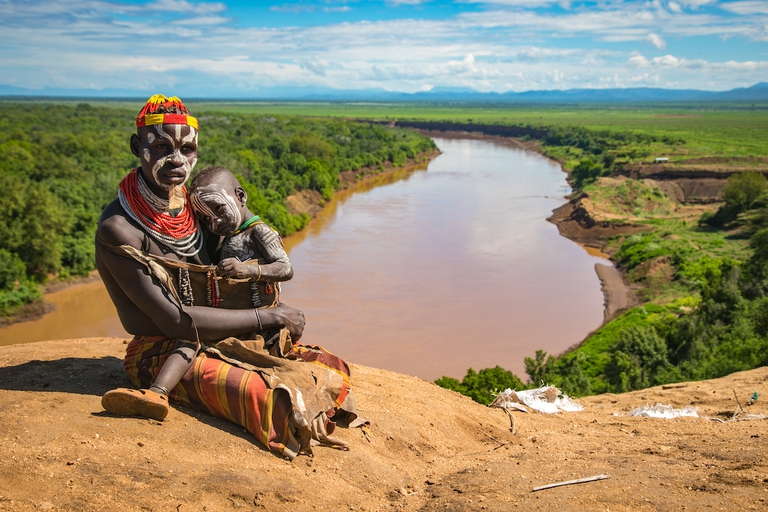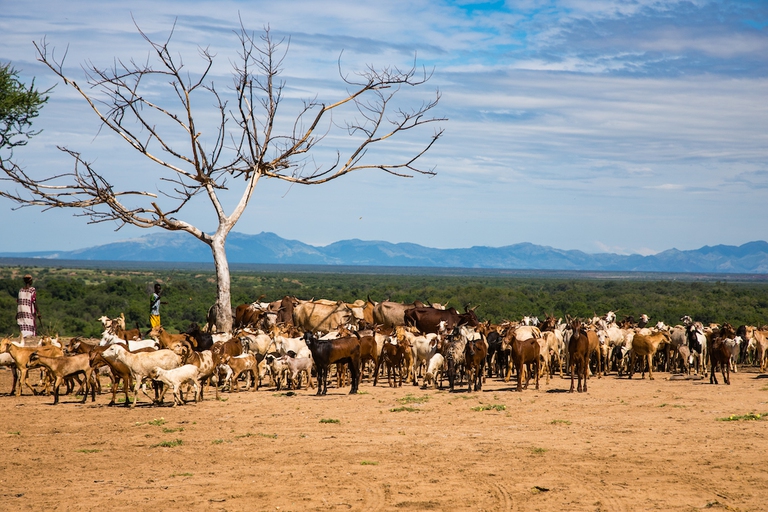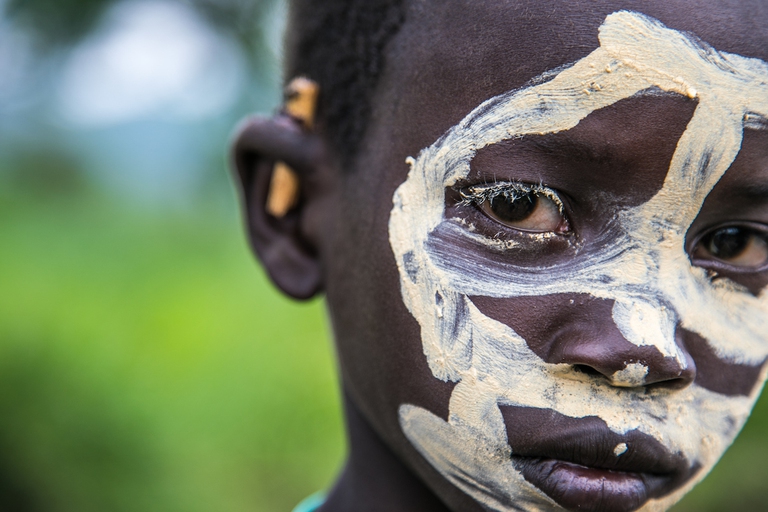
A special report from the Yuqui territory delves deep into the dreams, challenges, joys and sadness of one of Bolivia’s most vulnerable indigenous groups.
So-called development projects in the Lower Omo Valley, including a dam and sugar plantations, have come at an unbearable cost for indigenous communities. Elizabeth Fraser, Senior Policy Analyst at the Oakland Institute, on why the only way forward is for Ethiopia to address such abuse.
For centuries, the Omo River has played an integral role in the lives and livelihoods of indigenous communities in Ethiopia’s Lower Omo Valley. Of particular importance is its annual flood. During the rainy season, the snaking river swells, filling the river beds and naturally occurring ponds with water. As the flood waters retreat, the valley becomes a lush and fertile canvass used to cultivate crops and graze cattle. This rhythmic ebb and flow provides the backbone for indigenous livelihoods and their local economy.
But over the past 13 years, this way of life has been eroded as the Ethiopian government pushed forward with its plans to “transform” the region. In 2006, the then-government began constructing the Gibe III Dam to harness the power of the Omo River, increase Ethiopia’s energy potential and enable the development of large-scale irrigated plantations. By 2011, plans for the Kuraz Sugar Development Project (KSDP) – a massive sugarcane plantation project with five associated factories that was originally earmarked 245,000 hectares located downstream from the dam – were underway. These projects are both predicated on the halting of the Omo’s annual flood and eviction of local indigenous groups from the land, and have pitted so-called “development” in Ethiopia against the lives, livelihoods and existence of indigenous communities. The results have been devastating.
Last month, the Oakland Institute released a new report based on field research in the Lower Omo Valley between September 2017 and May 2018. It confirms the disastrous costs of these two projects on three indigenous groups in the region: the Bodi, Mursi and Northern Kwegu. The end of the Omo River’s flood has decimated local livelihoods. Initial promises made by the government and Italian construction company Salini Impregilo, responsible for building the dam, that an artificial flood would be released have never materialised. Today, communities face acute hunger, displacement, lack of livelihoods, and the erosion of their culture and identities.
The government has pressured communities to abandon pastoralism and adopt sedentary lifestyles. But resettlement sites offered for this purpose have been riddled with failed promises and abuse. Plots are often not big enough to feed families, ripened crops have been ploughed over, communities have been forced to dig their own irrigation canals under perilous conditions, and key services that were promised – schooling, healthcare, grinding mills, food aid and electricity – have either failed to materialise or been woefully inadequate.
As with many so-called development projects, the KSDP came with the promise of hundreds of thousands of new jobs in the region. But only a small percentage of this employment has actually been created and most has been given to migrant workers from other regions of the country. This is rapidly changing demographics in the region, making indigenous peoples minorities in their own lands. The jobs that have been offered to the Bodi, Mursi and Northern Kwegu – hunting buffalo that eat sugarcane for the men and removing crushed sugarcane refuse for the women – are mostly seasonal, temporary and low paid.
In the face of these changes, hunger is widespread. Food aid that was initially used to draw local communities to resettlement sites has been used to coerce people to stay in those sites.
The impacts of this developmental “transformation” are reflected in the words of a Mursi elder.
This is terrible. If the flood had come, we would be at the Omo now catching fish. But we are now sitting in the plains with nothing to eat … Death is near.
But change could now be on the horizon. In April 2018, a new Prime Minister, Abiy Ahmed, took office in Ethiopia with a reform agenda that emphasizes human rights and medemer – an Amharic word for coming together and synergy. At the same time, there is a growing international consensus among academics, international policy-makers and journalists, among others, of the need for action to address the situation in the Lower Omo.
The time is thus ripe for Prime Minister Abiy to address past abuses and demonstrate his commitment to human rights for all in Ethiopia. In doing so, he must cut ties with past leaders, who consider the indigenous in the region “backward”, and instead honour these communities and involve them in co-creating development plans. The Bodi and Mursi have already put significant thought into this, having advocated for their own Mursi Bodi Community Conservation Area for over a decade. Such projects should be seriously considered as part of a new era of development, one that benefits and includes indigenous communities, showing the world that development doesn’t have to come at the cost of their lands, lives and livelihoods.
After years of broken promises and abuse, this is the only way forward.
Siamo anche su WhatsApp. Segui il canale ufficiale LifeGate per restare aggiornata, aggiornato sulle ultime notizie e sulle nostre attività.
![]()
Quest'opera è distribuita con Licenza Creative Commons Attribuzione - Non commerciale - Non opere derivate 4.0 Internazionale.
A special report from the Yuqui territory delves deep into the dreams, challenges, joys and sadness of one of Bolivia’s most vulnerable indigenous groups.
The Yuqui people of the Bolivian Amazon fight not only to survive in the face of settlers, logging and Covid-19, but to preserve their culture and identity.
Jair Bolsonaro is accused of crimes against humanity for persecuting indigenous Brazilians and destroying the Amazon. We speak to William Bourdon and Charly Salkazanov, the lawyers bringing the case before the ICC.
Activists hail the decision not to hold the 2023 World Anthropology Congress at a controversial Indian school for tribal children as originally planned.
Autumn Peltier is a water defender who began her fight for indigenous Canadians’ right to clean drinking water when she was only eight years old.
The pandemic threatens some of the world’s most endangered indigenous peoples, such as the Great Andamanese of the Andaman and Nicobar Islands in India.
The Upopoy National Ainu Museum has finally opened. With it the indigenous people of Hokkaido are gaining recognition but not access to fundamental rights.
A video shows the violent arrest of indigenous Chief Allan Adam, who was beaten by two Royal Canadian Mounted Police (RCMP) officers.









